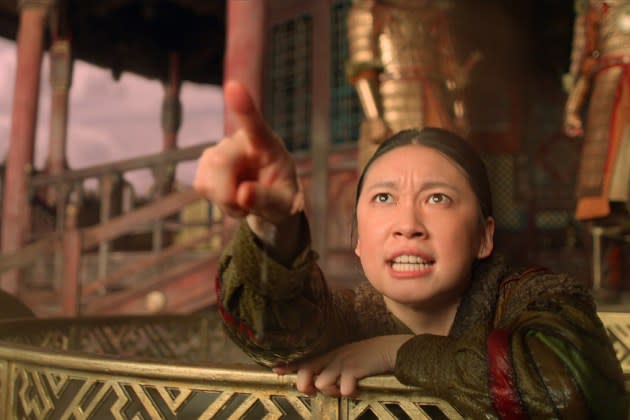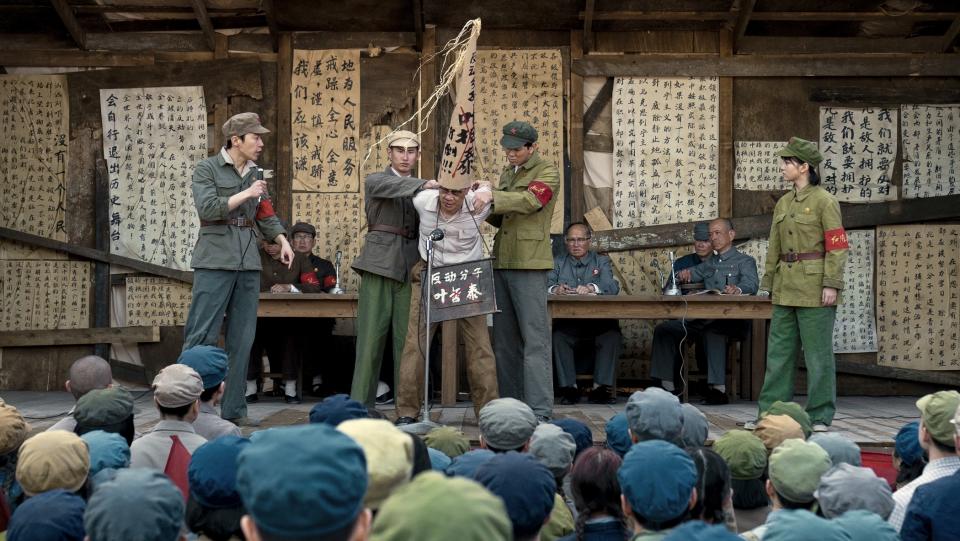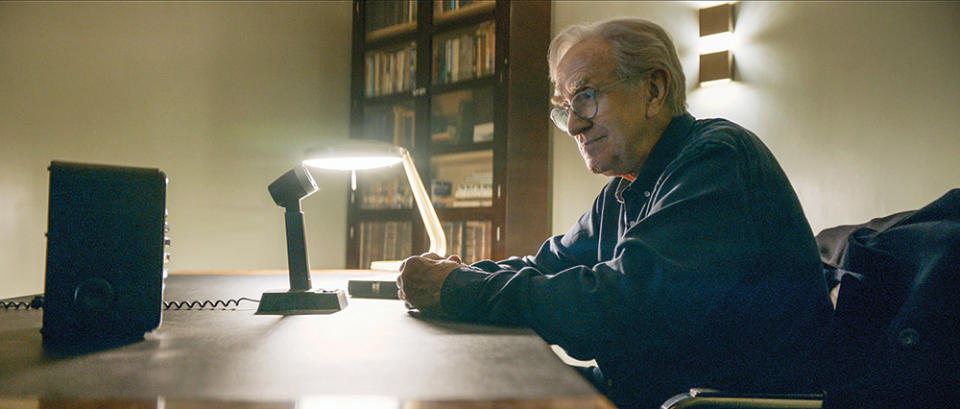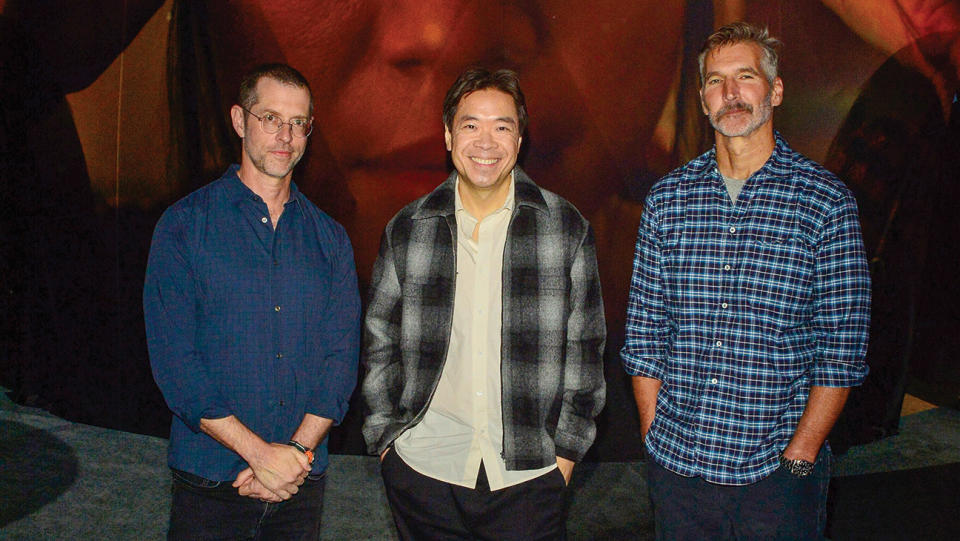The ‘3 Body Problem’ Creators Reveal Their 3 Favorite Scenes From First Season

A sci-fi drama unlike any other, Netflix’s 3 Body Problem provoked a mixture of critical acclaim, fandom buzz and political debate with its rather bold adaptation of author Liu Cixin’s celebrated physics-stuff novel. Showrunners David Benioff and Dan Weiss — coming off HBO’s Game of Thrones — teamed with True Blood writer-producer Alexander Woo on the daunting project, which tells the story of humanity’s reaction to a centuries-spanning alien invasion plot. Across eight episodes, the drama combined lavish spectacle with intimate human drama, earning a two-season renewal from the streamer despite its lavish price tag (more than $20 million per episode). Benioff, Weiss and Woo discuss their adaptive choices, the season’s unique tonal shift and their (very different) favorite scenes.
Reading over the responses to this season, it’s clear that even a lot of die-hard book fans were impressed by many of the choices you made for your adaptation. Which deviation from the source material did you struggle with the most?
More from The Hollywood Reporter
ALEXANDER WOO There are so many. Something that was certainly very time-consuming was adapting the more abstruse scientific concepts to a screen format where you don’t get to slow down or rewind — hopefully you won’t rewind.
DAN WEISS It’s like the Mark Twain line: “Sorry for the long letter, I didn’t have time to write a shorter one.” We started with this very long letter, and turned it into a much shorter one — which, hopefully, people can read without stopping their televisions.
There’s a tonal split in the season where the first five episodes — which jump between the Chinese Cultural Revolution, a modern-day conspiracy and an immersive VR game, and feature a lot of spectacle — feel different from the last three, more reflective, episodes. How concerned were you about keeping the audience?
DAVID BENIOFF We knew that episode five [which includes the Judgment Day tanker sequence and the eye in the sky revelation] was going to be the biggest one. So, yes, it was always something we were conscious about: Is there going to be a feeling of letdown after that? But for me, [episodes six, seven and eight are] when I really started to get a sense of who these characters are, and what their relationships mean. We’re in this for the long haul and we needed to have these key characters get their hooks into you. So I love the last three episodes, but, yes, there’s no denying that there is a mood shift.
WEISS We also thought about the landscape of television in general. There’s a structural sameness to the way a season tends to unfold. That pattern can get monotonous. There’s something to be said for following a story where it wants to go and not thinking about hitting the same slalom gates that you’re used to seeing in every show.

What scene in the first season were you the most proud of?
WOO The first scene of the show [showing a brutal Chinese Revolution struggle session]. The heavy lifting was done in large part by [director] Derek Tsang. It was an act of extraordinary courage on his part as someone who is in Hong Kong — so this affects him very directly. He’s showing something a lot of people don’t want to see. But it’s a moment in history that for millions and millions of people — my own family included — is something that changed the course of our lives. It’s a powerful experience that I’m really proud we brought to the screen.
BENIOFF The Judgment Day sequence [where a tanker turned passenger ship is cut into ribbons by nanofibers]. You’re thinking: “Can we pull this off and can we make it batshit crazy?” It’s not so much pride in what we did, it’s pride in how the whole team came together to make it work. The bigger the spectacle, the more meetings there are. Everyone was sitting around a room talking about this endlessly. Those meetings paid off in a sequence that I think is pretty amazing.
I like the shot of the paper dolls being sliced in half along the wall.
BENIOFF That’s my favorite shot.

And Dan?
WEISS I really love the scene where Jonathan Pryce is having a conversation with a disembodied voice coming out of a 1960s Dictaphone trying to explain the fairy tale “Little Red Riding Hood” to an alien intelligence and tripping on a major land mine in the process. One of the things I loved about the books is they provided the opportunities for vast, giant sequences — that only get more vast and more giant as the show goes on — but also tense, engaging, personal chamber piece scenes that are just people’s reactions to very strange and surreal circumstances and working through the implications of them.

Alex, you mentioned the opening. I found it interesting how the scene ended up being used by all sides for different political purposes. It became an outrage Rorschach test.
WOO Exactly. You see people being inhumane to each other and then you can interpret it however you like. But ultimately, it is the brutality of one human being against another and, ironically, co-opted for various political ends. There is an unfortunate natural tendency to want to dehumanize someone else because they’re easier to brutalize. When “we are bugs,” they can come crush us. But when it’s “you are just like us,” it’s a lot harder.
You’re now working on Netflix’s order for a final two seasons. Is that going to be enough to adapt the remaining two books?
WEISS We knew going into this how many hours we need to tell the rest of the story, because we’ve got a road map through to the end. And we have what we need to get to the end as intended when we started.
BENIOFF By the time we finish with the show, it will be seven years that we’ve devoted to it. We’re now at a place where we get to tell the rest of the story, and, yes, we have enough time to tell the rest of the story the way we want to. And that’s immensely gratifying.

This story first appeared in the June 12 issue of The Hollywood Reporter magazine. Click here to subscribe.
Best of The Hollywood Reporter

 Yahoo News
Yahoo News 
